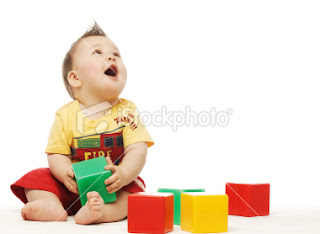Early care and education policies and programs involve the provision of (a) child care to preschool-aged children, and care before and after school to school-aged children while their parents are employed or receiving further education; (b) other child development focused and early educational experiences to preschool-aged children; and (c) child development, child care, and early education informationmade available to the parents of preschool-aged children.
This definition provides room for many of the more narrowly focused child care and early education programs and providers found across the country, including child-care centers, family and group family child-care programs and networks, preschools, nursery schools, Head Start programs, and prekindergarten programs. It also includes efforts to inform and educate parents about child development, child-care alternatives, and approaches to teaching preschool children appropriate social, cognitive, and language skills. For some in the field, however, this definition does not capture all of the meanings of early childhood education.
The term “preschool children” in the definition refers to children during the period immediately prior to their entry into primary school. In the United States, this age group is typically three- and four-year-old children, and the endpoint of this definition wavers between the ages of four, five, and six. In the absence of national policies, kindergarten (for five-year-olds) remains nonobligatory in many states across the country but is a part of compulsory schooling in others. Further acknowledging the socially constructed nature of this time in the life of the child, the National Association for the Education of Young Children (NAEYC) defines early childhood as the period from birth to age eight. As editors, we agreed to avoid a fixed definition of the age range of the field, given these vast disparities in common use. As the reader will soon learn, a majority of the contributors have interpreted the age range of these volumes to encompass the period from birth through age five. The absence of early childhood perspectives in the primary grades has emerged as an area of major concern to many in the field.
Nor did we delimit the language used to describe the field. For many Americans, child care (of infants and toddlers) is distinct from early childhood education (interpreted as a form of early schooling). For others—the editors included—the field of early childhood education embraces the multiple systems of early care and education, as acknowledged in the previous definition. For some, the politics of this discourse is central to the controversy in that adults who are identified as caregivers typically earn less than those identified as teachers. On the other side of this particular coin is a growing concern about increased efforts to “teach” infants and toddlers so as to promote early brain growth and development. Many of our international contributors refer to systems of early care and education.
This introduction to the field of ECE is not a digression; rather, it acknowledges the fact that much of what is thought about and done for young children is wed to the particular sociocultural and historical contexts within which children live and learn and grow up. It is for that reason that we have solicited entries on the ecology of early childhood, represented in Volumes 1, 2, and 3 with entries on the changing nature of families, the growing prevalence of media and technology in children’s lives, and new concerns about children’s physical health (e.g., obesity), and their mental well-being (e.g., violence, drug abuse).
We also invited contributors in Volume 4 to describe the “place” of childhood as interpreted and experienced in their various cultural contexts. These entries include discussions on how childhood has changed, both from a legal point of view (as expressed through laws and conventions of children’s rights) as well as the position of the child in various extra-family spaces. Throughout the four volumes of this work, contributors from various fields have responded to our invitation to add to the ongoing debate about the nature and meaning of early childhood, drawing upon literatures in anthropological studies, child development, education, psychology, sociology, social policy, and the history of childhood itself. Their entries provide a compelling case for the complexity of the field, its dependence on collaboration, its varied positioning within diverse cultures, and its inevitable controversial nature.
Read More : What Is Early Childhood Education?
